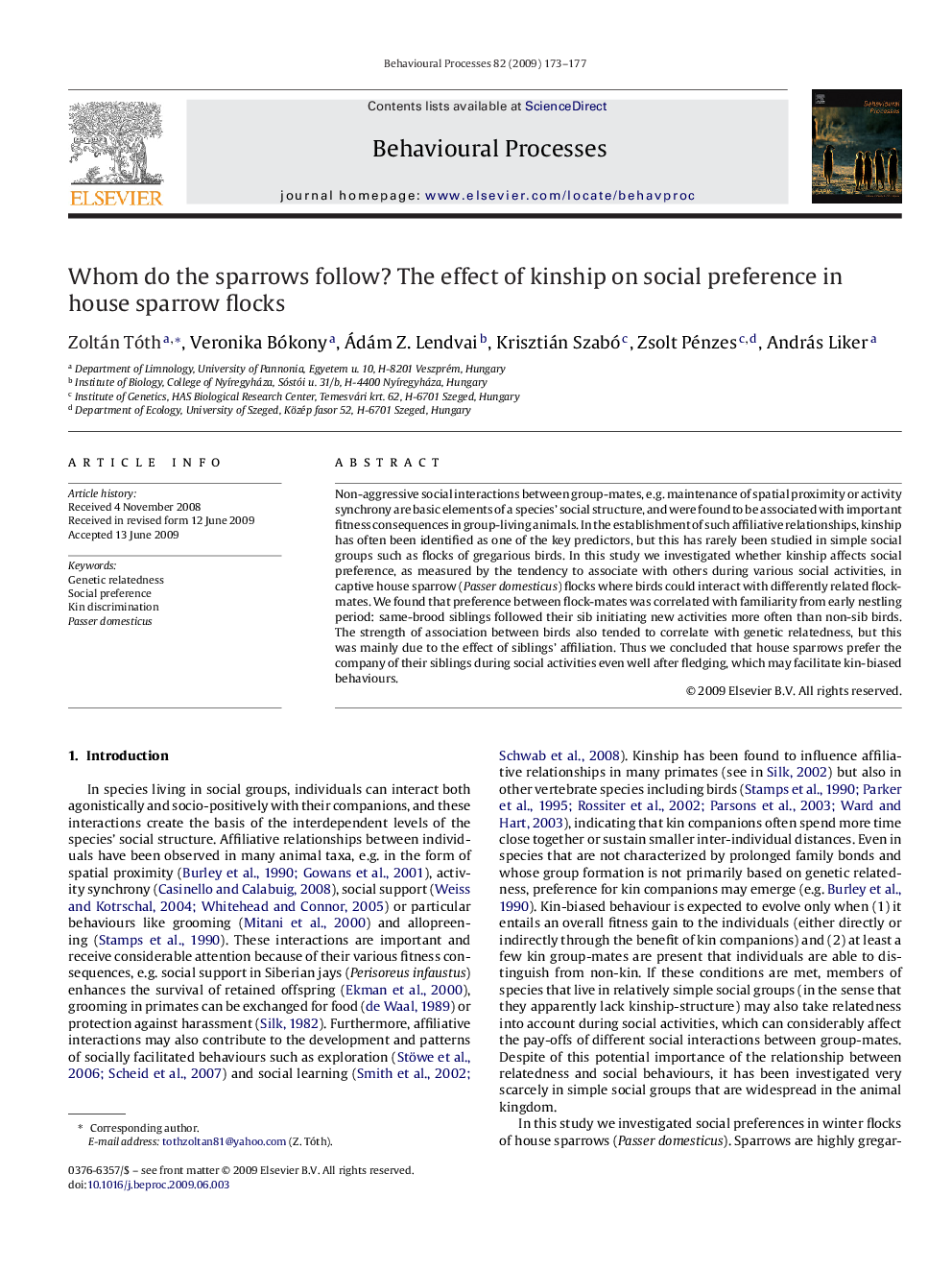| Article ID | Journal | Published Year | Pages | File Type |
|---|---|---|---|---|
| 2427526 | Behavioural Processes | 2009 | 5 Pages |
Non-aggressive social interactions between group-mates, e.g. maintenance of spatial proximity or activity synchrony are basic elements of a species’ social structure, and were found to be associated with important fitness consequences in group-living animals. In the establishment of such affiliative relationships, kinship has often been identified as one of the key predictors, but this has rarely been studied in simple social groups such as flocks of gregarious birds. In this study we investigated whether kinship affects social preference, as measured by the tendency to associate with others during various social activities, in captive house sparrow (Passer domesticus) flocks where birds could interact with differently related flock-mates. We found that preference between flock-mates was correlated with familiarity from early nestling period: same-brood siblings followed their sib initiating new activities more often than non-sib birds. The strength of association between birds also tended to correlate with genetic relatedness, but this was mainly due to the effect of siblings’ affiliation. Thus we concluded that house sparrows prefer the company of their siblings during social activities even well after fledging, which may facilitate kin-biased behaviours.
